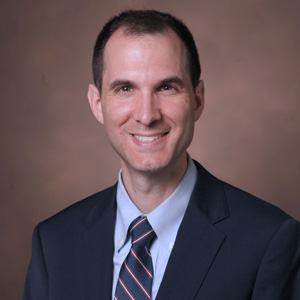Clinicians working with opioid use disorder (OUD) patients have designed a new model of care to ensure smooth entry and solid progression for patients seeking evidence-based, effective treatment – including needed medications.
The model, being adopted in states all across the country, is called a hub-and-spoke partnership.
“If a person having a heart attack comes to the emergency department, we take it for granted that they’ll receive the right level of care, regardless of their insurance status,” David Marcovitz, M.D., director of the Division of Addiction Psychiatry in the Department of Psychiatry and Behavioral Sciences at Vanderbilt University Medical Center. “There is a host of proven, modern treatments available to you in that moment of desperation, and you will benefit from them.”
While an evidence-based approach is not yet the norm for treatment of substance-use disorders, hub-and-spoke networks empower small and rural health care clinicians – considered the “spokes” – to provide appropriate, quality care.
“In hub-and-spoke partnerships, the parties involved all approach opioid use disorder as a chronic disease whose treatment will, by necessity, involve medications.”
Embracing the Chronic Disease Model
The purpose of the hub-and-spoke approach for opioid use disorder is to supply networking, education, and support to community care providers and other agencies that engage with affected patients.
With evidence demonstrating the effectiveness of medication for patients with OUD, this resource is given primary consideration under model.
“In hub-and-spoke partnerships, the parties involved all approach opioid use disorder as a chronic disease whose treatment will, by necessity, involve medications,” Marcovitz said.
“Ninety percent of OUD patients relapse without medication. That drops to 50 percent with medication.”
The “hub” – often an academic medical center like Vanderbilt – is typically equipped to provide intensive, complex care. “Spokes” offer more generalized health services, such as primary care physicians, community clinics and hospitals, mental health practices, and private treatment centers.
Better Together
Today, many staffers at treatment and counseling centers lack sufficient awareness of certain medications, such as buprenorphine, that have been shown to help ease patients off more powerful and dangerous opiates.
“Medications are the big story because they provide a simple way to organize around the chronic disease model, a model that recognizes the need for them,” Marcovitz said.
“Ninety percent of OUD patients relapse without medication. That drops to 50 percent with medication.”
Yet, some still providers consider prescribing medication to the OUD population as merely substituting one drug for another and are instead more likely to emphasize participation in 12-step programs, such as Narcotics Anonymous.
“Twelve-step programs help many people, but by disallowing lifesaving medications, these programs are doing patients a disservice,” he said. “There is no need for an either-or approach.”
In the hub-and-spoke system, the partners share referrals and support each other in providing evidence-based, personalized treatment.
States with Medicaid expansion programs are ahead of the curve in integrating medication “across the treatment continuum,” he added.
In a Non-expansion State
“Medicaid pays for the majority of substance use disorder care in many states,” Marcovitz said.
He recently co-authored an article in Psychiatric Services that provides a first-hand description of a hub-and-spoke network implemented a state that has so fa rejected Medicaid’s expansion: Tennessee.
“Twelve-step programs help many people, but by disallowing lifesaving medications, these programs are doing patients a disservice. There is no need for an either-or approach.”
Without the Medicaid expansion, authorized by the Affordable Care Act in 2010, low-income residents must rely on two grants from the federal Substance Abuse and Mental Health Service Administration to implement the hub-and-spoke partnerships for OUD.
The funding sources are the State Targeted Response to the Opioid Crisis (STR) and State Opioid Response (SOR) programs. In fiscal year 2022, Tennessee received a total of $54,848,862 in such grants.
Additional funding has come from settlements in lawsuits against opioid makers and distributors.
A Patient’s Experience
In the hub-and-spoke model, a person experiencing an overdose could present at a community hospital emergency department as their initial entry point. From there, the patient might be referred to the hub, which would be better equipped to provide complex care and oversight in administering addiction-treatment medications.
Once stabilized, the patient might transition to another spoke, such as outpatient treatment with a psychiatrist or therapist. To ensure these transitions occur smoothly and to keep patients from falling off track, the hub has care navigators to assist with intake and referrals, including the use of medication for OED.
The Housing Obstacle
Finding appropriate, supportive housing for patients receiving treatment for OUD represents another large hurdle.
“It’s the biggest problem I wrestle with, day to day,” Marcovitz said.
A place for someone to spend 30 days of sober, supported living can be difficult to find, yet can make a dramatic difference.
Marcovitz said his team typically has more than a dozen formerly homeless individuals at a time living in designated-sober facilities, getting encouragement and help finding a job.
“A few months ago, they were living on the street, injecting drugs, and coming to the hospital with complex infections,” Marcovitz said. “Now, they are coming in dressed for work.”





